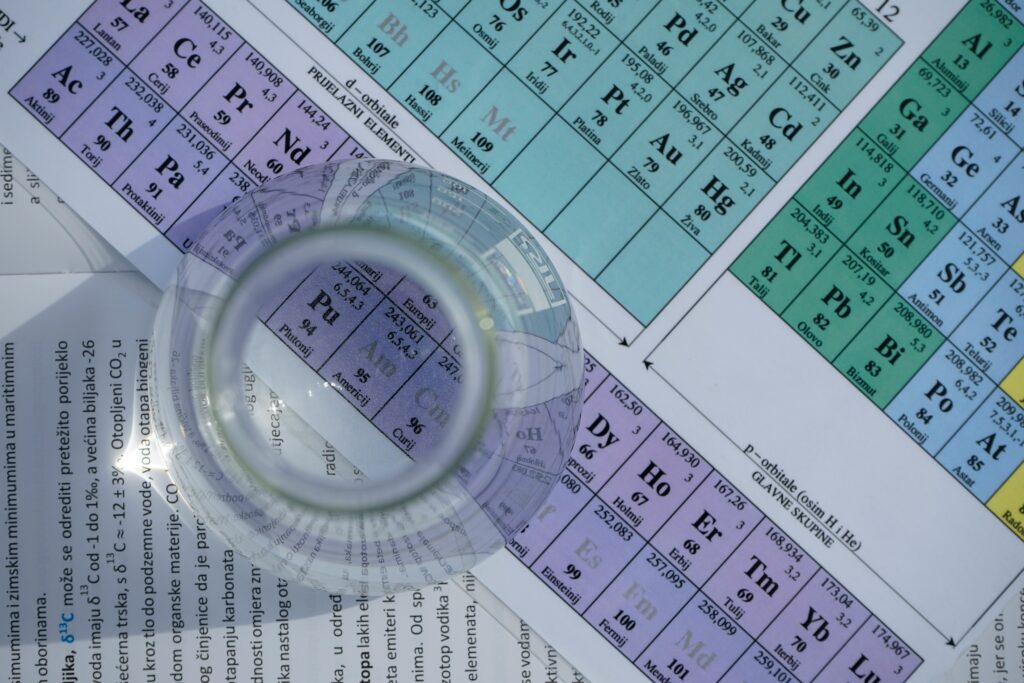Choosing between Standard and Advanced Maths in year 11 is a big decision for New South Wales (NSW) students. The NSW Curriculum Reform program offers different pathways. The choice can affect your HCS results, university options and career path.

Here, we are going to explore the topics explored in Years 11 and 12 in maths courses, how they are scaled and which university courses might require Advanced math.
Understanding the Option: Standard vs. Advanced in Year 11 Maths
In NSW, Year 11 marks a turning point in your education. You begin to specialise in choosing subjects that align with your interests and future goals. Math is a core subject, but you will be given a choice between different levels of difficulty: Standard and Advanced, and even Extension courses. You need to make a decision as it will impact your HSC success and future opportunities.
1. The Differences in Topics Covered in Year 11 and 12 Maths Courses
Let’s break down what each math course covers, both in Years 11 and 12. This will give you a clear idea of the content and the jump in difficulty as you move through levels.
A. Year 11 Mathematics and Its Syllabus:
Standard Maths: Standard Maths is designed for students who need a solid understanding of mathematical concepts for everyday life and future studies in non-mathematics-related fields. You can expect to cover the following topics such as:
- Financial Maths: Simple and Compound interest, loans, investments.
- Measurement: Area, Surface Area, Volume, Rates, and Ratios.
- Network: Network Diagrams, critical paths.
- Statistical Analysis: Data collection, representation, and interpretation.
- Algebra: Basic algebra skills in solving equations and using formulas.
Advanced Maths: Advanced maths is designed for students who are aiming for university courses that require a strong mathematical foundation. The field includes science, engineering, economics or finance. It is more abstract and theoretical than Standard Maths. The topics include:
- Functions: Quadric and other functions, graphs, and transformations.
- Calculus (Introduction): An introduction to differentiation and its applications.
- Trigonometry: Trigonometric ratios, identities, and equations.
- Coordinate Geometry: Equations of lines and circles.
- Logarithms and Exponentials: you will work with Logarithms and Exponential functions.
- Polynomials and
B. Year 12 Mathematics and Its Syllabus:
Standard Maths: In Year 12, Standard Maths continues to build on the Year 11 foundations, focusing on real-world applications and problem-solving. You will encounter:
- Types of Relationships; Right-angled Triangles
- Rates; Scale Drawings; Investments
- Depreciation, Loans, and Further Statistical Analysis
- More complex network problems and optimisation techniques.
Advanced Maths: Year 12 Advanced Maths delves deeper into calculus, trigonometry, and functions, preparing students for university-level mathematics. You will encounter the following concepts:
- Advanced Calculus (Differentiation and Integration)
- Exponential, Logarithmic, and Financial Models
- Statistical Analysis; Probability
- Introduction to vectors in two and three dimensions.
2. How the Different Maths Subjects Are Scaled in the HSC
HSC scaling adjusts raw marks to reflect each course’s difficulty and cohort strength. In the maths sequence, scaled-mark uplift typically follows:
- Mathematics Extension 2 – Highest uplift, rewarding its advanced content and top-tier cohort
- Mathematics Extension 1 – Strong uplift, recognising its challenging calculus and proof topics
- Mathematics Advanced – Moderate uplift, reflecting greater rigor than Standard
- Mathematics Standard – Minimal uplift, given its broad cohort and foundational syllabus
Bottom line: Excelling in Advanced (or higher) maths will generally yield more scaled marks—and a stronger ATAR—than the Standard pathway.
- Comparative Scaling in Standard and Advanced Maths in HSC
| Factor | Standard Maths | Advanced Maths |
| Difficulty | Moderate | High |
| HSC Scaling | Lower | Higher |
| Career Relevance | Non-STEM fields | STEM, Economics, Medicine |
| Workload | Lighter | Heavy |
- Why Does Scaling Matter?
If two students both score an 80 raw mark in their HSC:
- Mathematics Advanced
- That 80 will generally place the student in a higher percentile of the combined Mathematics cohort (Advanced + Standard) and is therefore scaled up by several marks.
- Mathematics Standard
- That same 80 raw mark typically corresponds to a lower percentile, so it is scaled down relative to the cohort’s scaled mean.
How It Works
- Since 2020, NESA reports both Mathematics Advanced and Mathematics Standard on a common scale, and UAC then converts those HSC marks into scaled marks based on the overall cohort’s performance in the common exam sections Bored Of Studies.
- Because Advanced students tend to outperform on these common sections, the scaling algorithm boosts their raw marks, whereas the Standard cohort—with a wider range of ability—sees its raw marks dampened Universities Admissions Centre.
Why It Matters for Your ATAR
- Your ATAR is calculated from the sum of your best scaled units, so even a handful of extra scaled marks from Mathematics Advanced can translate into a significant ATAR uplift.
- Annual variation: Scaling depends on the academic strength of each year’s cohort, so results can shift slightly from year to year.
Key Take-Away
Choosing Mathematics Advanced (and achieving strong raw marks) is generally a smarter strategy for maximising your ATAR—provided it aligns with your strengths and interests.
3. Which University Courses Require Advanced Maths in the HSC
Many university courses assume a certain level of mathematical proficiency. While some courses accept Standard Maths, others specifically require or strongly recommend Advanced Maths.
Here are some examples:
- Engineering
- All major streams (civil, mechanical, electrical, etc.) at UNSW, University of Sydney, UTS and most other Australian universities list Mathematics Advanced as a prerequisite.
- Science
- Degrees with heavy quantitative components—physics, chemistry, environmental science, computer science—at ANU, Macquarie, UNSW, University of Sydney and similar institutions require Mathematics Advanced.
- Economics & Finance
- Undergraduate programs in economics, finance, and actuarial studies (e.g. at the University of Sydney, UNSW, and the University of Melbourne) typically mandate Mathematics Advanced.
- Computer Science & IT
- Most Bachelor of Computer Science, Software Engineering and related degrees at UNSW, University of Sydney, UTS and equivalents specify Mathematics Advanced as a minimum.
Tip: Always verify specific entry requirements on each university’s official course page or by contacting their admissions office—some competitive programs may even recommend Extension 1 Maths.
4. How to Make the Right Choice Regarding Math Courses?
Choosing between Standard and Advanced Maths in Year 11 is a personal decision. You can consider the following factors while choosing a math course for you:
Your Mathematical Ability and Interest:
Are you comfortable with abstract concepts? Do you enjoy problem-solving? If you find maths challenging, Standard Maths might be a better fit. Advanced Maths could be the right choice if you excel in maths and enjoy the challenge.
Future Aspirations:
What do you want to study at university? You need to research the prerequisite subjects for your desired subjects. If Advanced Maths is required or recommended, you should strongly consider taking the course. If you are a student who wants to study engineering, medicine or data science, you have to take Advanced Maths or Extension Maths.
Seek Advice:
You can talk to your maths teachers, including private tutors, career advisors and older students. They can offer valuable insights based on their experiences.
Your Work Ethic:
You should know that Advanced Maths requires more time and effort than Standard Maths. Are you prepared to dedicate the necessary time to succeed?
Consider a Trial Period:
Some schools allow you to try both Standard and Advanced Maths for a few weeks before making a final decision.
Deciding whether you want to opt for Advanced Maths or Standard Maths requires careful consideration. Ultimately, the best choice is the one that sets you up for success both in your HSC and beyond. If you need help deciding between the math courses, you should seek out help from professional math tutors. Kalibre Education is a reputed private tutoring centre offering Standard and Advanced Maths tuition for Years 11 and 12. Our experienced and qualified Math teachers are well-equipped to guide you on the right path for your future career. Call us today if you need a dedicated math tutor.



